Charlie Brooker Unveils Insights on ‘Black Mirror’ Season 7 Conclusions and Potential Future Installments
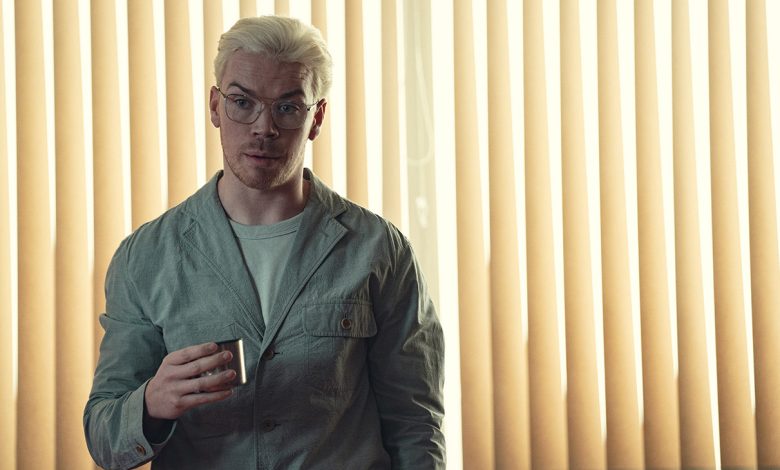
[This story contains some spoilers for Black Mirror season seven.]
You could say Charlie Brooker is going back to basics with the seventh season of Black Mirror. After experimenting with things like interactive movie Bandersnatch and “Red Mirror” horror last season, the creator-writer of the hit Netflix series says he wanted to go back to the Black Mirror formula of sorts.
اRelated Posts:
“You’ve got human beings and then some form of miraculous technology is introduced into their lives that upends it,” says Brooker about the theme of the new episodes. If you haven’t figured it out by now, technology isn’t the bad guy in Brooker’s stories: humans are, as is proven by many of the characters in the six new episodes, which include the first-ever Black Mirror sequel, “USS Callister: Into Infinity.” The endings range from bleak to unnerving to sentimental and victorious, with one that can be debated as hopeful or bleak, or perhaps somewhere in between.
Below, Brooker and executive producer Jessica Rhoades explain the inspiration for these new offerings, revealing why they wanted to return to the “USS Callister” spaceship and why Brooker left it open-ended, what that “Plaything” ending says about the current state of technology, how complicated feelings about AI led to “Hotel Reverie” and “Eulogy” (a story Brooker wrote specifically for Paul Giamatti), what the biggest tragedy of “Common People” is and how “Bête Noire” is a great example of the Black Mirror launchpad. Brooker also has a recommendation for viewers who want a season eight.
***
Charlie, I’ve seen you talk about how you wanted this to be more like an “OG season” of Black Mirror. Did you go into the season with that agenda, or did you realize that as you were making these episodes?
CHARLIE BROOKER I think it’s fair to say that last season started out as a different season entirely. It started out that they were all going to be “Red Mirror” stories — “Red Mirror” being a sort of horror brand. Then I came up with the idea for “Joan Is Awful” — annoyingly, in the middle of making the season — which was so Black Mirror.
JESSICA RHOADES And it wasn’t going to wait. That episode had to happen last season.
BROOKER Yes, it had to happen then. So we ended up branding “Demon 79” as a “Red Mirror” episode last season. This time, when I say it’s sort of “OG Black Mirror,” this is where I’m starting from: Your baseline Black Mirror is that you’ve got human beings and then some form of miraculous technology is introduced into their lives that upends it. That’s often at the basis of a lot of what we’re doing. And so I knew very much that we were starting from there. Then I was keen to, at the same time, revisit areas that we haven’t really gone into before. And of course, we literally revisit one whole story.
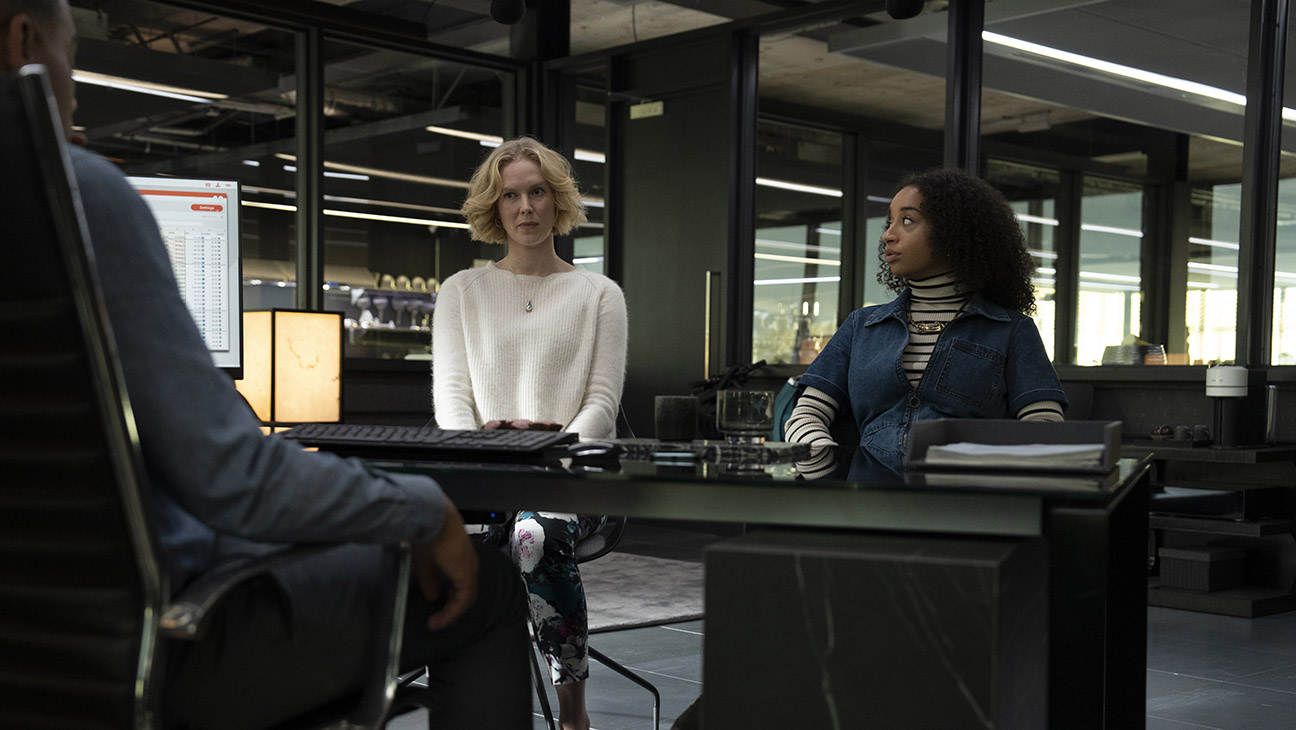
Black Mirror has always been a jumping off show for British talent. But now it’s such a big global show with major American actors too. I’m sure stars come to you asking for roles that you can’t even fit in. How do you balance trying to keep cultivating lesser-known British talent?
RHOADES I think that starts with the script. Charlie writes such exquisite characters. Yes, there is now a lovely, long list of people who have reached out and pursued the show. But at the same time, you have to ask, who’s the right person for the role? In the case of someone like Paul Giamatti, you practically wrote that episode for him.
BROOKER I’ve been a huge fan of his for as long as I can recall.
RHOADES So something like that [with “Eulogy”] was the perfect opportunity. But on some other episodes, like “Bête Noire,” both Siena [Kelly] and Rosy [McEwen] had read for the roles. We got to see their tape and we got to see those characters come alive as they embodied them. So it’s a case-by-case basis. We are aware that we’re doing six episodes. We like to look at it as a whole and find the episodes that we want to make sure we preserve a certain Britishness and a discovery.
BROOKER Stretching all the way back to the start of the show, our very first season we obviously were a British show, but we had a mix on the first one of people who were familiar to British viewers. They may not have been familiar to international viewers, but they were familiar to British viewers, along with completely new faces, or at least people whose work I hadn’t seen much of before. That’s a really important part of the show’s DNA. Because each story is a separate standalone story, it means we could have an episode where you know who that lead actor is or sometimes, we bring you new talents that you may not be aware of and they get a chance to really prove what they can do. They’re always cast because they’re fucking great actors!
Charlie, you also lamented the show being called the “tech is bad show” last season.
BROOKER I’m always moaning!
But you always have said that Black Mirror is about humans making bad choices, and this season there is certainly a lot of that. Was there one episode or two where you really set out to reclaim that narrative?
BROOKER Generally speaking, it’s always been clear to me throughout the show that the technology is not necessarily the problem. Like you couldn’t do my job if you thought technology was just evil, because so much of the job involves creating these gizmos and realizing them in ways where they should always look seductive. They should always look like, “Wow, I can see the use of that technology.” Otherwise it would be sort of nonsensical. But usually what we show is that the technology has some unintended side effect that’s got some kind of human cause. Sometimes negative, sometimes it’s actually a positive upside that people didn’t see coming.
So I don’t know if there’s a particular episode. Take an episode like “Common People,” the technology that we show there is amazing. It would be literally life-saving technology. And then the problem comes from elsewhere. It’s not the technology itself, the technology itself is a man-made miracle.
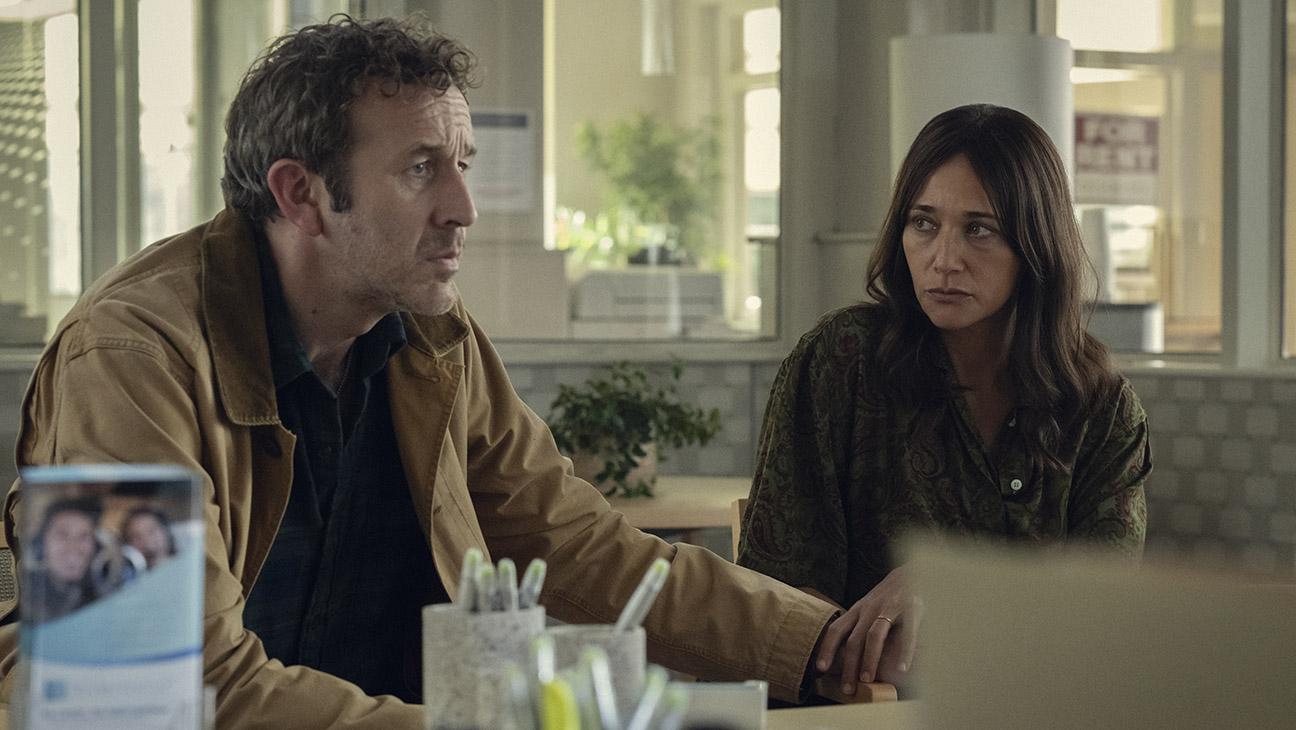
There are a lot of callbacks this season, even circling back around to Bandersnatch with Will Poulter’s return in “Plaything.”
BROOKER To be honest, that story didn’t start that way. With “USS Callister: Into Infinity” we knew we were doing a proper sequel. “Plaything” actually started out as a story in its own right and what happened when writing the story is that I realized, “Hang on a minute, this is set in the early ‘90s and the character goes to meet a programmer. Why would I come up with a new character when I’ve got this character I so loved writing with Colin Ritman for Will Poulter?” And we’ve got Asim Chowdhry, who plays Moe Tucker, the owner of Tuckersoft. I just thought, “Could we get them?”
So I wrote the scene with Colin Ritman in it, and that was more about a returning character rather than a direct sequel. It’s a luxury in this show to be able to bring characters back. Across my career, I’ve written so many short things that the character I’ve written for most consistently over my career is Philomena Cunk [Diane Morgan] for Cunk on Earth, who is fantastic and I love doing that. But sometimes I look at other shows and I get jealous that their casts survive from story to story! So that’s partly where it stemmed from, about bringing those characters back and similarly, approaching the “Callister” sequel like, “I just love those characters, why can’t I bring them back? We’re an anthology show, but fine, we’ll do a sequel!” It has to feel like it owns its place.
Bandersnatch was Netflix’s first adult interactive feature. Would you ever do that again?
BROOKER I don’t know, that was so difficult. That was partly experimental. It was Netflix coming to us saying, “We’re doing this interactive stuff. Would you like to use it?” And I said, “No.” And then I went away and annoyingly had an idea and then came back and said, “Okay.”
I think what would be interesting and something I would definitely tackle is something inside the way the viewer experiences the narrative, but it depends what that would be. [Pauses] I’d do another [interactive]. I’d do another. Why not?
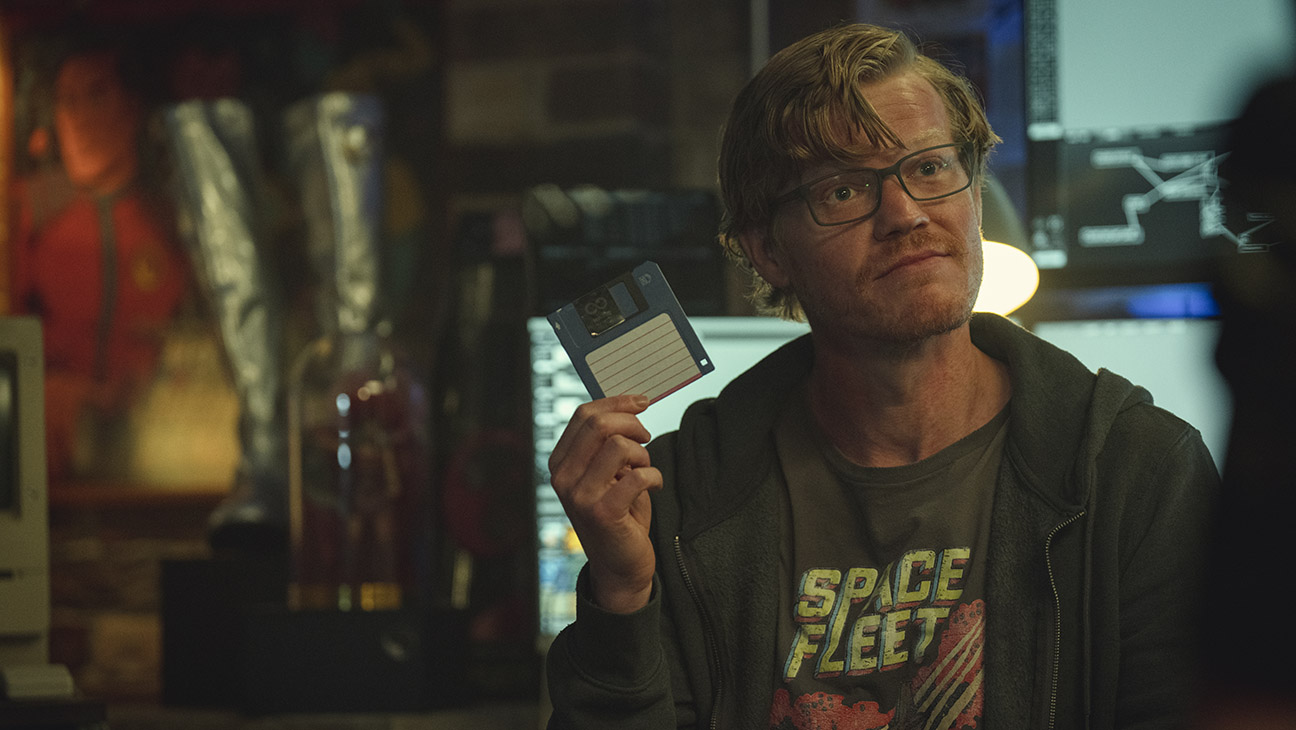
Speaking of “Callister,” you go from Star Trek to Star Wars with this sequel, which returns star Cristin Milioti as Captain Cole. Almost all of the characters in the sequel survive in the end, so there is an option to do more. Did you leave it open-ended so you could revisit it? And did doing “Callister” make you want to revisit any other episodes, like for example, “San Junipero”?
BROOKER It’s always been in my head anyway [to revisit stories]. From the early days of the show when we did we did “White Bear” in season two, I remember thinking, “Oh, I’ve got an idea for a follow-up to this.” So it’s often been at the back of my head to revisit a world or the characters. We’ve often sown in Easter eggs from episode to episode throughout the seasons, so we’re malleable in that way. So I wouldn’t say that necessarily doing “Callister” made us think, “Oh, are there other ones?” Because that’s always been floating around. But certainly, it’s the first time we’ve ever done [a proper sequel] and it was just so much fun to reconnect with all the cast and have Toby Haynes back in the director’s chair. Selfishly, it’s fun for a writer to get to do more than one episode with the same characters.
RHOADES It comes down to the characters. I was a fan of the show years before I worked on the show and “USS Callister” had been one of my favorite episodes. Just as a pure fan, it’s exciting to have those characters back, but to find out that Charlie himself was inspired to sit down and write those voices again and to continue from that place, it’s hard not to look at other characters you might love from the seasons gone by.
BROOKER It’s like, never say never, because obviously where we end this one, you could potentially pick it up from there and I remember Toby saying that at the time [after we finished the first one]. And I was like, “Oh, no, no, no.” And then you sort of forget, which I hear is what childbirth is like — traumatic and painful and you go, “Never again,” and then a year later you go, “Well, maybe!” Because your brain has blanked out how how strenuous and difficult it was, because it’s a challenge. So, never say never!
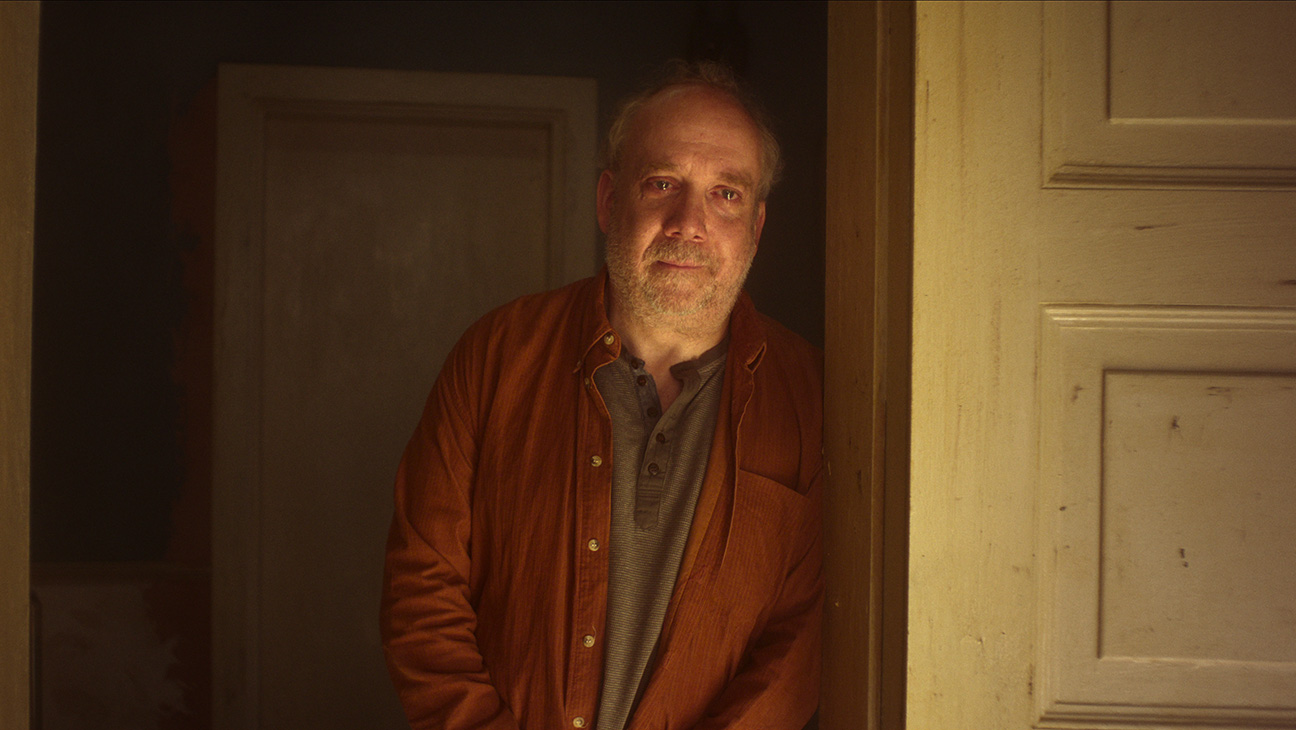
I’ve heard you use the words “beautiful, contemplative” and “reflective” to describe this season. We certainly see that with “Eulogy” and “Hotel Reverie,” which both tackle AI. “Hotel Reverie” director Haolu Wang recently said AI is unbiased, but shaped by the people who wield it.
BROOKER That’s a very good way of putting it. This isn’t what we explore in the episode. The episode is almost fantasy. The tech is being used in a different way from what you might imagine of a Black Mirror episode, when you hear that a vintage British movie is being remade with AI avatars.
I think that AI itself is a phenomenal potential tool and I can see its value as a tool in the hands of creatives. I think because all creative work is basically an attempt by one human to communicate with some other humans, if you take one of the humans out of the end of one of those pipes, then I don’t understand what you’ve got anymore. You’re doing something else, but you’re not doing that. You’re creating a different form of content that isn’t creative art. That said, I can absolutely see its power as an analytical tool in all kinds of scientific uses. I can see its value as a tool for creatives to wield.
The thing that worries me, and worries almost anyone who’s got any job at all and looks at AI, is that you don’t want humans to be frozen out of that equation either physically, emotionally or financially. That’s the worry. It’s an incredible tool. The genie is going to be out of the bottle. We just have to think mindfully about how we apply it. But I still don’t think we’ll lose the human appetite for human stories. I think we still want to hear stories being told to us by people.
There is also a diverse cast on that episode (starring Issa Rae, Awkwafina, Emma Corrin). How important was that when casting? Given the story and theme of unbiased AI, was it key to get so many perspectives?
BROOKER I guess, yes. This is something I thought when I wrote “San Junipero,” and this might sound naïve, so apologies if this is a naive thing to say, but who the characters are is both really important and in some ways not important when I’m writing. When I’m writing, I’m just trying to think about humans and, what would this human do in this situation? I’m not a spiritual person. Do I believe in a soul? I don’t know. I don’t know why I’ve just pitched myself such a profound question in the middle of this! (Laughs) But I try to just think about what a human soul would do in this scenario. That said, obviously, it is very important to who the characters are. It’s absolutely hugely important to who Dorothy Chambers [Corrin] is within that story. The way I keep myself sane while writing, conversely, is to sort of ignore that while writing, if that makes sense.
RHOADES We had this on “Joan Is Awful” last year. Oftentimes, Charlie writes something and then whether it’s me getting to be the first audience or other people when they get to read it for the first time, they have different reflections upon it. I think “Hotel Reverie” is an episode that’s talking about several different characters who wouldn’t normally have the agency that they’re provided by the story, kind of classically. And I think that’s alive and well.
BROOKER It’s not like I’m oblivious to that while I’m writing it. It’s just that I don’t focus on it. I hope what that means is, like with an episode like “San Juniper,” that at the same time, it feels like a very universal story that’s accessible to everyone that also feels very specific to some people. Some people feel that it really speaks to them on a very specific level. If we achieve that, that’s mission accomplished.
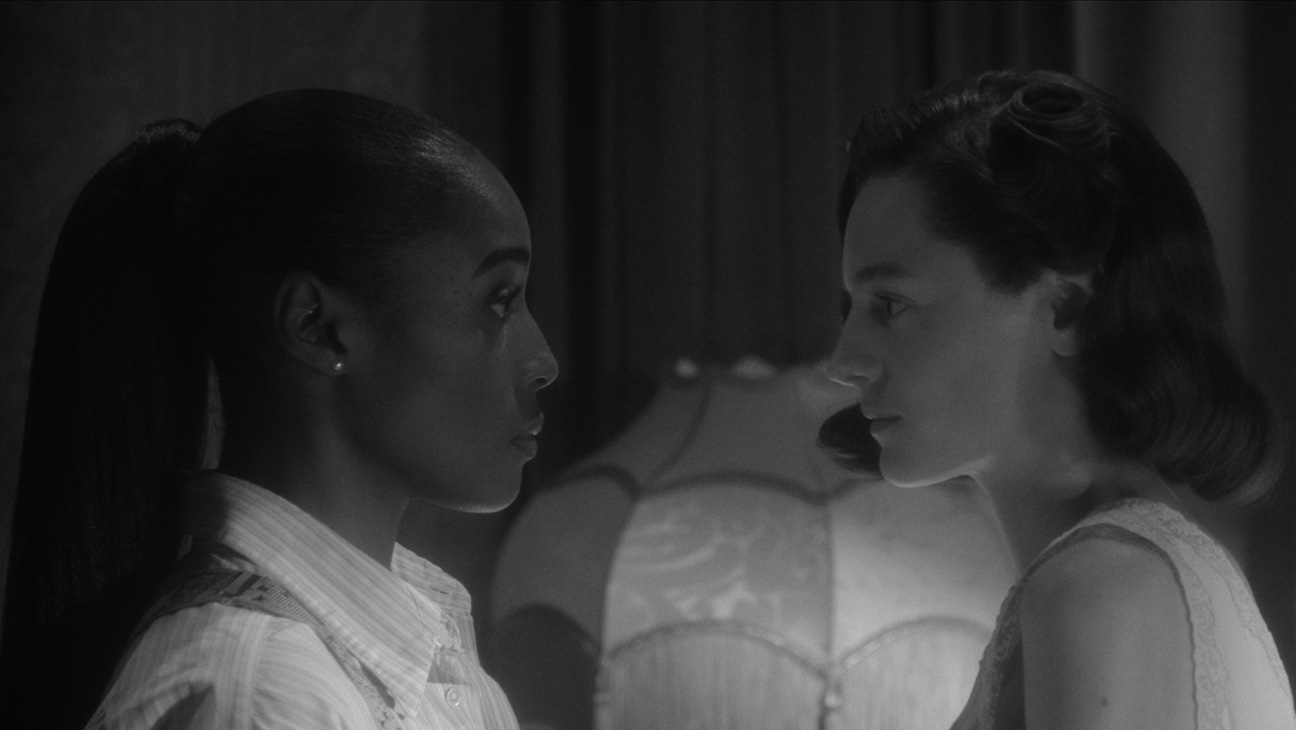
I’ve seen you say you’ll do this show until you die, or until people get bored of Black Mirror. All of these episodes have different types of endings: There’s bleak to total cliffhanger to sentimental. Since it’s so well-rounded, when making this season, were there other stories you left on the cutting room floor for next time?
BROOKER Yes, there are some stories that are pretty much fully baked and ready to go. And there are others where I’ve got chunks of story or concept that I’m just slightly trying to work out. I’ve got the concept, but not quite the story. I’ve got a chunk of the story, not quite the concept. So there’s a mix.
Does that mean we might see season eight sooner than we saw season seven?
BROOKER That’s down to people watching the show, watching it again, watching it a third time, watching it a fourth time to check that was the right decision…
RHOADES Adding the thumbs up.
BROOKER Clicking the double thumbs up, writing to Netflix, saying, “Please recommission this show.” I think that would be the ultimate guide. But I mean, it’s such a fun job that I’d love to keep exploring.
Of all the endings, what most describes how you feel right now about technology?
BROOKER “Plaything” is quite an ambiguous ending. Maybe that’s pretty close in that, looking around the world, there are all sorts of horrible things going on. It’s a worrisome time. We’ve got tech that is a wave of misinformation. Things could get worse before they could get better. Technology is an amazing tool, and we’re amazing things as people. So with any luck, we’ll dig ourselves out of this shit. So, cautious… I wouldn’t say optimism, but cautious lack of… Copimism? Hope-ishness? (Laughs)
***
Black Mirror season seven is now streaming on Netflix. Check THR‘s series ranking of all episodes, including season seven.
Source: Hollywoodreporter
HiCelebNews online magazine publishes interesting content every day in the TV section of the entertainment category. Follow us to read the latest news.
Related Posts
- Samuel Goldwyn Films Secures North American Rights for the Hilarious Sci-Fi Comedy ‘Cold Storage’ from Studiocanal
- Lizzo’s Transformative Health Journey: Unveiling Her Insights on Weight Loss and Wellness
- Insights from an Emerging Director: Exploring the Unique Tone of DC’s Lanterns
- “A Minecraft Movie” Soars to Success with a Stunning $163 Million U.S. Opening and $313 Million Worldwide Debut
- The Evolution of ER: Discover What the Iconic Cast is Up to Today





